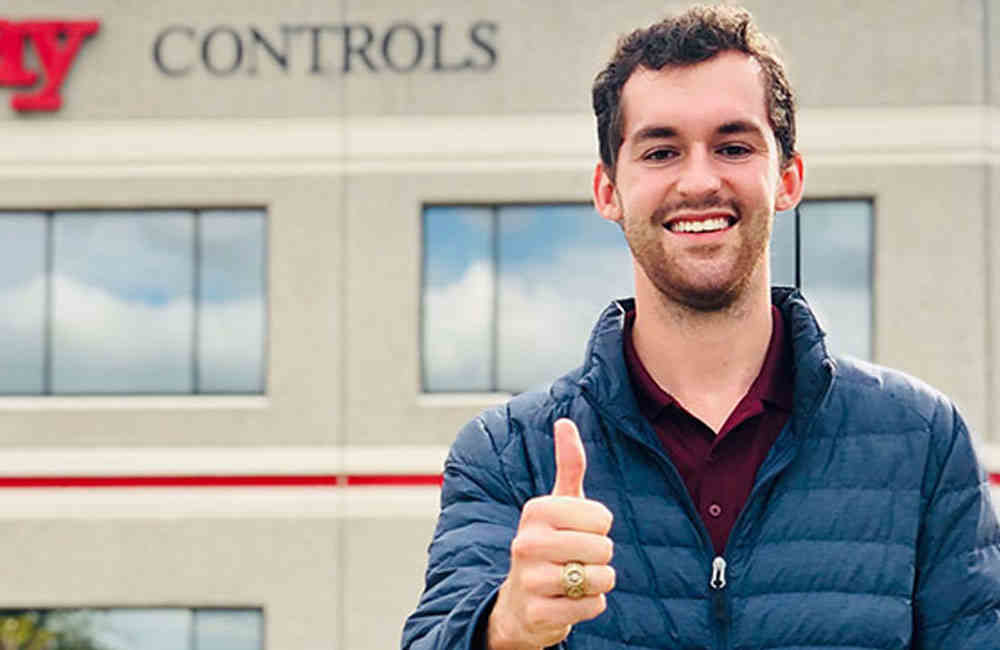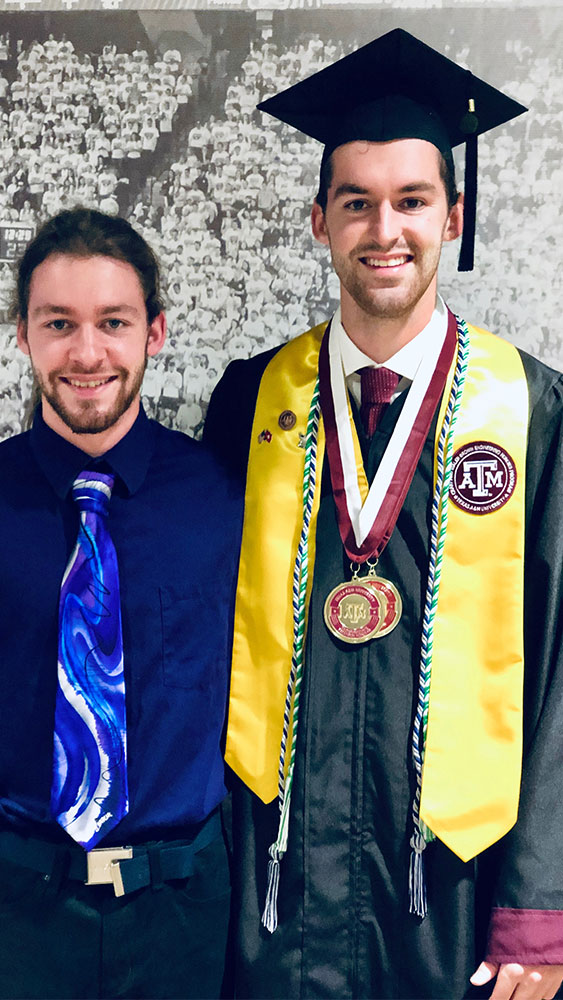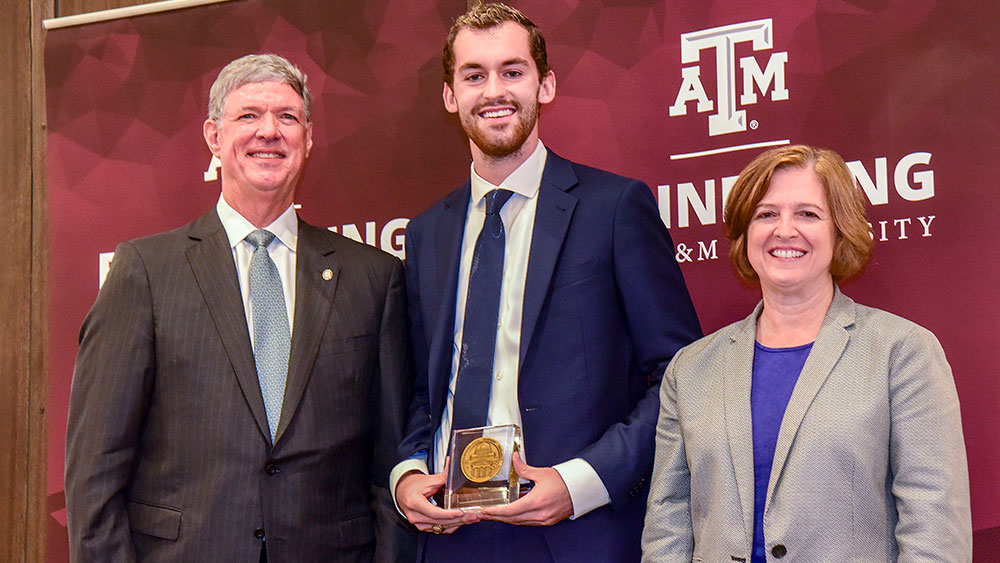
Recent graduate Luke Oaks is the first graduate to receive a Bachelor of Science in interdisciplinary engineering from the College of Engineering at Texas A&M University. Oaks graduated in spring 2019 and joined Brays International, Inc. as a controls engineer. His plan is to ultimately progress toward a career in technical sales and engineer improved valve and actuator-dependent systems.
The interdisciplinary engineering degree allows students a chance to design their own program of study and graduate with a skill set unavailable in other degree programs. In this program, students are still able to pick a focus and specialization. For Oaks, he chose a path that combined biomedical and industrial engineering.

Q: How did you find that interdisciplinary engineering was right for you?
A: When I graduated high school and set my sights on attending Texas A&M, I told my classmates that I would be majoring in biomedical engineering to ultimately pursue a Ph.D. in it, address gaps in cancer diagnostic technologies and be a respected professor. But it was the empowerment that comes with designing a program of study, the careful balance of curricular flexibility and faculty oversight, and greater opportunities for entrepreneurship made available by way of a more flexible technical elective track that all led me to my major. I found [double majoring] would have delayed my graduation by a semester or two, until I realized that I could have them both in interdisciplinary engineering.
Q: What are some ways you learned to be successful in the program?
A: I had peer groups in biomedical engineering and industrial engineering that were critical to my success as an interdisciplinary engineering major, because I existed on the interface of those two communities in establishing my identity. I recommend that students interested in interdisciplinary engineering make a list of three to four “life paths” that include one for choosing interdisciplinary engineering, and another two to three for choosing other engineering majors of interest. I also talked to my friends, family and faculty to determine which interests, based on variables of community, opportunity, flexibility and rigor, to determine which was the best choice for me.

Q: How would you best describe the program you made for yourself?
A: I called my interdisciplinary engineering degree plan “human-centered design engineering” because my undergraduate curriculum allowed me to explore biomedical engineering and systems engineering as they relate to engineering project management and entrepreneurship. In this vein, interdisciplinary engineering has allowed me to understand physiology and psychology in the context of commercial innovation with flexibility otherwise not afforded by degrees such as biomedical or industrial and systems engineering, respectively.
Q: As the first graduate in the major, what have you learned from this experience?
A: Having that curricular flexibility to conduct research in biomedical engineering, take classes in systems engineering and engage in engineering entrepreneurship within my four years at the university uniquely prepared me for a career that I would have otherwise never achieved. I just feel so fortunate to the program for the chance to uniquely explore myself and my passions.